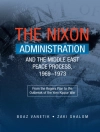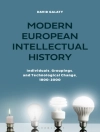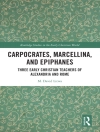This collection investigates the culture and history of the Low Countries in the sixteenth and seventeenth centuries from both international and interdisciplinary perspectives. The period was one of extraordinary upheaval and change, as the combined impact of Renaissance, Reformation and Revolt resulted in the radically new conditions – political, economic and intellectual – of the Dutch Republic in its Golden Age. While many aspects of this rich and nuanced era have been studied before, the emphasis of this volume is on a series of interactions and interrelations: between communities and their varying but often cognate languages; between different but overlapping spheres of human activity; between culture and history.
The chapters are written by historians, linguists, bibliographers, art historians and literary scholars based in the Netherlands, Belgium, Great Britain and the United States. In continually crossing disciplinary, linguistic and national boundaries, while keeping the culture and history of the Low Countries in the Renaissance and Golden Age in focus, this book opens up new and often surprising perspectives on a region all the more intriguing for the very complexity of its entanglements.
Praise for Revolt to Riches
‘The essays are written by historians, linguists, bibliographers, art historians, and literary scholars and cover a variety of political, economic and cultural aspects of this extraordinary period in the history of the Low Countries. While it is, obviously, not possible to discuss all contributions in this short review, it is remarkable that many share an interest in migration, religion, and the production of pamphlets, several of which have beautiful reproductions in this volume.’
BGMN – Low Countries Historical Review
‘This edited collection, consisting of 23 articles, gives a versatile and detailed overview of the Low Countries in the early modern period. The range of topics is interesting and the articles well argued, which makes this collection not only suitable for those interested in the individual topics, but also a valuable general introduction to the Low Countries in this period…the collection at no point feels tired or dull, but portrays the Low Countries with vivid colours. This is partly assisted by the beautiful illustrations in colour.’
TSEG – The Low Countries Journal of Social and Economic History
लेखक के बारे में
Ulrich Tiedau is Associate Professor of Dutch at UCL and an Associate Director of the UCL Centre for Digital Humanities. In addition, he serves as editor-in-chief of Dutch Crossing: Journal of Low Countries Studies.












